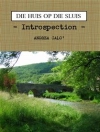Extensive areas spanning billions of hectares within the world’s arable landscapes are heavily degraded, have suffered losses of biodiversity, and require major restoration efforts. Indeed, the United Nations declared 2021-2030 to be the decade of restoration. The restoration challenges facing south-eastern Australia’s woodlands are not dissimilar to challenges which characterize many agricultural landscapes internationally, and thus form the basis of the case study featured in this chapter, incorporating research conducted since 1998. A key insight from our work is that factors operating at multiple scales are critical for informing effective restoration to maximize landscape-scale biodiversity values. We present a restoration hierarchy to highlight how factors ranging from the individual tree level to farm- and landscape- scales need to be considered in restoration efforts, then outline some key lessons from our research for effective translation into on-ground action.
Innehållsförteckning
- 1 Introduction
- 2 Reforestation at multiple spatial scales
- 3 Reforestation and temporal scales
- 4 Improving the effectiveness of restoration programs
- 5 Conclusion
- 6 Acknowledgements
- 7 Where to look for further information
- 8 References












